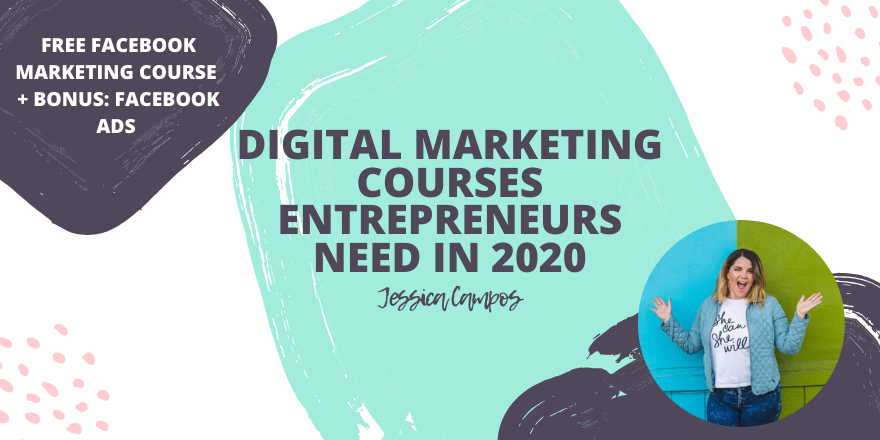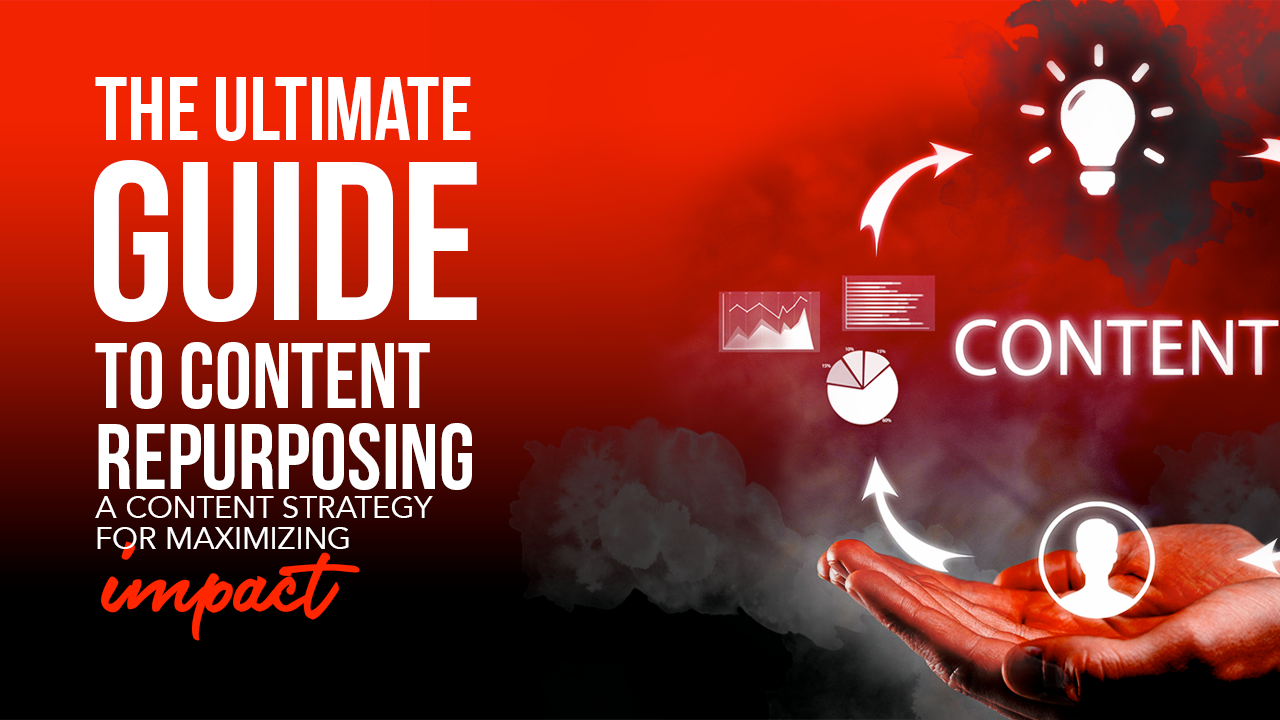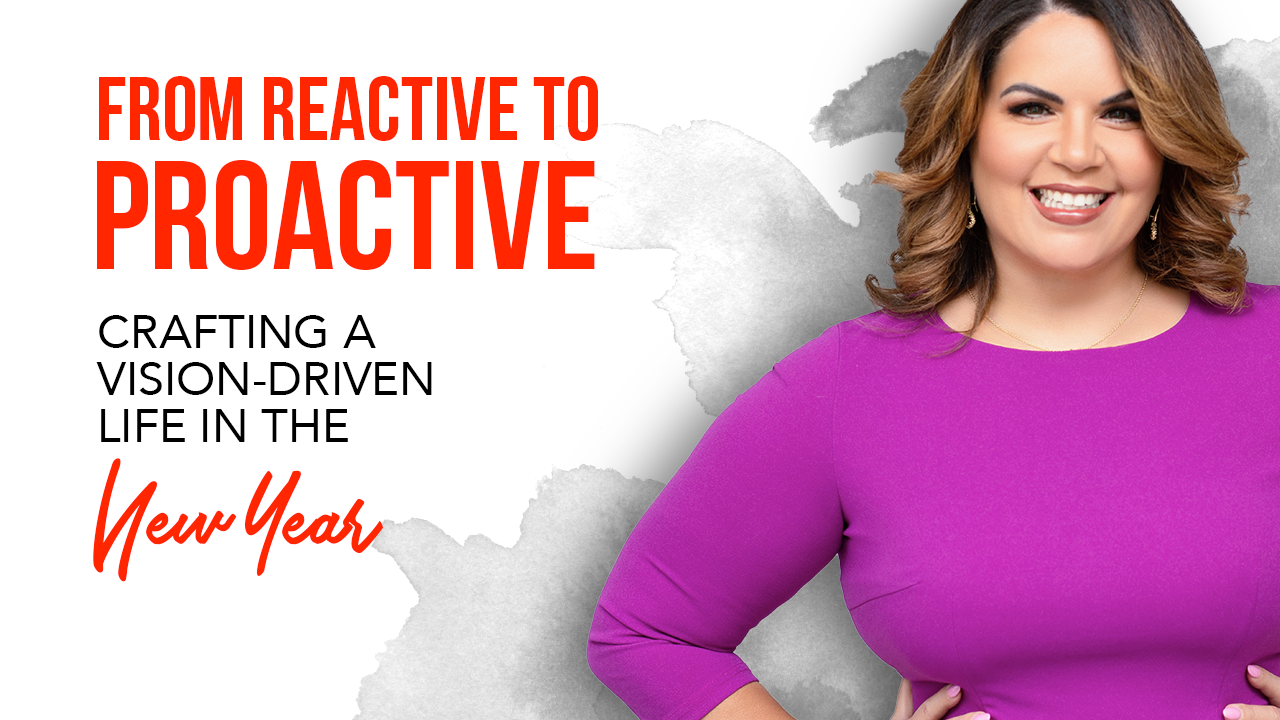Digital marketing skills are critical not only to those actually working in the field but also to entrepreneurs. In thought leadership, there is always something new to learn and implement.
Are you wondering what digital marketing skills you could be learning in 2020? Keep reading!
Before we dig into all the digital marketing tactics you could potentially learn in 2020, and your mind goes into TikTok effects, let’s take 3 steps back and define what digital marketing actually is. In order to do that, we must first start with the broad concept of marketing.
What Is Marketing (Let’s Cover The Basics So You Can See The Big Picture)
Marketing, as a discipline, involves all the actions a company undertakes to draw in customers and maintain relationships. Marketing encompasses a large array of topics and ideas.
When I deliver marketing education during speaking engagements and strategy sessions, I like to begin with the general ideas of marketing. I clarify the definition of marketing by differentiating great marketing versus noise.
What is “marketing noise?” Let’s dive deeper.
The steps taken to make a brand or a product visible, creating brand awareness, without a thoughtful process to target future buyers, is considered the “noise.” Basically, it is creating excitement around your brand by putting it out there for everyone to see. The truth is: not everyone is your potential client.
On the other hand, using the momentum of the noise and taking it just a step further in order to make your brand or a product visible and deliverable to your target audience and actual potential buyers, that’s considered great marketing. Do you see the difference?
The marketing strategies you will be reading in this article are the ones that will move your audience from a state of simple awareness and noise, to actual visibility by the clients you are trying to attract.
What Is Digital Marketing?
At a high level, digital marketing refers to advertising delivered through digital channels such as search engines, websites, social media, email, and mobile apps. Another word for digital marketing is online marketing.
Although it feels like the internet has existed forever, it hasn’t. Launched by Tim Berners-Lee and his team in 1991, the World Wide Web project didn’t really take off until the first successful mass-market browser, Netscape, was released in 1994. In the following two years, the number of people using the web soared from 16 million to 70 million.
While the internet has changed everything, literally everything, it is worth remembering that the old forms of marketing still exist and carry weight. Despite the growth in digital advertising, TV still takes a third of ad spend in the US and continues to grow, albeit at a slower rate.
Embracing digital trends does not mean discarding traditional marketing methods.
Still in 2020, Word of Mouth marketing impression results 5x more sales than a paid media impression and people are 90% more likely to trust and buy from a brand recommended by a friend.
With this in mind, let’s cover the digital marketing strategies entrepreneurs and business owners need to learn in 2020.
Facebook Marketing
Facebook’s organic reach might have declined, but there’s a bright side.
Over the last 3 years, Facebook has worked hard to clean up their mess after the Cambridge Analytica scandal. This forced the company to pivot and they have done a fantastic job!
Take a look at the top popular social networks based on users (represented in millions).
If you don’t think your skills are up to date with Facebook marketing, I recommend a recap of what’s new in Facebook Marketing in 2020.
I did a series for My Social Media University on the 2019-2020 Facebook Updates with 4 videos that will take you about 53 minutes to complete, and as a BONUS, Facebook Ads 2020! Sign up so you can learn all about Facebook Marketing, for free.
Facebook Messenger
Messenger marketing is becoming a very effective strategy to raise awareness and generate leads.
87.1% of U.S. marketers will use Facebook marketing in 2020. That’s according to estimates from eMarketer. It’s because of its opening rate in comparison to email marketing.
In an experiment by HubSpot, content delivered through Facebook Messenger had an open rate of 80 percent and a click rate of 13 percent. The same content delivered through email had an open rate of 33 percent and a click rate of 2.1 percent. In other words, email was completely outclassed by Messenger. Interesting, right?
This is a particular area where Facebook has been updating its platform to add automation, in particular, integrating features to book appointments, as well as to purchase products and services.
Digital consumers are more educated, impatient, and demanding. As a result, customized marketing is a trend we will continue to see more.
Think about Alexa and Google. What if you can create that level of interaction with your users? The great news, you can!
If you want to take your automation to the next level, and even have your own Alexa, you can have it with Manychat. Click here to learn the fundamentals of a chatbot. It’s a free course, hosted by Manychat.
Instagram Marketing
Some marketers will argue that Instagram should be the #1 social media platform, regarding engagement. If we consider that Instagram’s organic engagement, in comparison to the rest of the social media platforms, Instagram wins.
Instagram is no longer the app where you find teenagers showcasing their pretty filters. There’s more to it than that.
As an entrepreneur, you will want to learn how to reap the benefits of Instagram for Business to give your brand more visibility in front of potential clients.
Check out Later.com for free training and detailed guides. And of course, I’m here to help you with implementation and high-level strategy.
Search Engine Marketing (Content Marketing)
SEO is, by far, one of the most complex digital marketing skills to learn, but it’s not because it’s difficult. The reason is that Search Engine Optimization is process-based.
There Are 3 Main Types Of Seo That An Seo Strategist Can Focus On:
On-page SEO: This SEO focuses on the content that’s “on the page,” and how to optimize that content to help boost the website’s ranking for specific keywords.
Off-page SEO: This SEO focuses on the links that are being directed to the website from elsewhere on the internet. The number of “backlinks,” and the publishers carrying those links, that link to your website helps you build trust in the eyes of a search engine. This causes your website to rank higher as a result.
Technical SEO: This SEO focuses on a website’s architecture, examining the back-end of a particular website to see how each webpage is “technically” set up. Google cares as much about the code of a website as it does its content, making this specialty quite important to a website’s search engine ranking.
At the very least, you should learn how to generate content that can ignite your visibility using SEO.
SEO isn’t a skill that you can just learn from a video. Since you will need to analyze data to understand the results and get insights, we recommend learning that in a practical way.
If you’re interested in learning SEO, our Business Accelerator Program is doing live workshops and webinars.
This article features 10 SEO tools I personally use.
SEMRush Academy is a great resource to learn SEO, for free. Click here to check it out.
Content Marketing
As content marketing becomes more common, so does its presence in business budgets. Research indicates that 53 percent of businesses have established content marketing plans and budgets.
As an entrepreneur, it’s important to stay current with these trends. If you haven’t invested in learning content marketing, there’s a good chance you don’t have a robust content marketing plan. Your digital assets: social media accounts, website, landing pages, and emails are just tools where you share promotions, but that’s not enough!
Brands need to be humanized. Users want to interact with people; the best way to achieve this is to adopt a unique digital-based personality.
Content marketing is the best digital marketing strategy you can ever learn. Julia McCoy offers an amazing certification in content marketing. Click here to check it out.
Reputation Marketing
What is reputation marketing? Although the term is often used interchangeably with online reputation management (ORM), it doesn’t mean the same thing.
As an entrepreneur or business owner you need to know the difference, so here’s a more accurate definition:
Reputation marketing highlights and amplifies positive brand content like customer reviews through traditional and digital marketing channels to boost sales. In short, it’s a strategy to promote your brand’s existing good reputation rather than repair a damaged one.
That’s an important distinction to keep in mind. While reputation marketing does have a positive impact on brand image, it generally won’t improve your search results. Since your marketing initiatives will prompt consumers to research your brand on Google, you’d better have positive content immediately for them to discover.
Reputation management uses SEO, content creation, social media, public relations and so much more to establish positive search reputations for individuals and companies. Those strategies strengthen a brand’s online presence in a natural way to bury negative search results. As a result, search engines show people your brand’s most favorable content.
Once a business has earned favorable media mentions and positive online reviews, reputation marketing services can then spin that content into campaigns and case studies.
Developing an impeccable online presence goes beyond your online first impression these days. Users like to search and “dig” to see if they can trust the brand. You can’t control what they search. But you certainly can control what they are able to find. This is why it’s important to take control of your online reputation.
Want Digital Marketing Courses + Mentoring?
That’s what I do! I’m a digital marketing educator. I teach individuals and organizations in all things digital marketing; from social media basics and lead generation to UX and SEO.
If you want to discuss details about my marketing courses, you can book a quick call here or check out my Business Accelerator Program where you get all the courses, plus live strategy calls.
Hey, don’t forget to get my free Facebook Updates Class- free + I’m giving a BONUS class on Facebook Ads 2020.










